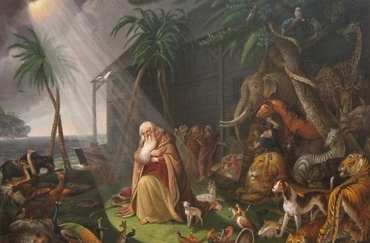Beast

In Genesis 1:24, beasts signify the things of man's will or loves. (Arcana Coelestia 44, 46)
In Genesis 9:10, beasts signify all that was living in the man of the Ancient Church, and also what belonged to his new will; likewise the lower things of his understanding and the will therefrom. (Arcana Coelestia 1026-1029)
In Psalm 104:20, beasts signify affections longing to be instructed, or spiritually nourished. (Apocalypse Explained 650[10])
In Luke 10:35, since the beast was a donkey, this signifies to instruct another according to his capability. (Apocalypse Explained 1154)
The beast of the south (Isaiah 30:6) signifies people who are principled in the knowledges of good and of truth, but do not apply them to life and instead to science.
Every beast and creeping thing (Genesis 8:19) signifies the goodnesses of the internal and external man.
"Beasts" represent the affection for doing good things, a true desire to do them from the heart. In the negative sense, "beasts" stand for the lust to do evil.
The beast ascending out of the sea (Revelation 13:1) signifies reasonings from the natural man confirming the separation of faith from life.
(References: Apocalypse Explained 13, 773; Revelation 13:11)
Arcana Coelestia #5276
5276. 'A great abundance of corn in all the land of Egypt' means the multiplication of truth in both parts of the natural. This is clear from the meaning of 'an abundance of corn' as a multiplication of truth, dealt with below; and from the meaning of 'the land of Egypt' as both parts of the natural. For knowledge is meant by 'Egypt', see 1164, 1165, 1186, 1462, 4749, 4964, 4966; and since knowledge is meant by that land, so also is the natural meant by it, for the reason that as the expression 'factual knowledge' is used to describe what is stored in the natural, 'the land of Egypt' therefore means the natural mind in which factual knowledge is stored. This being so, 'all the land of Egypt' means both parts of the natural - the interior natural and the exterior natural, regarding which, see 5118, 5126. The reason 'an abundance of corn' means a multiplication of truth is that the expression describes the opposite of 'famine', by which an absence of truth is meant. The word used in the original language to express an abundance of corn - an antonym to 'famine' - means in the internal sense a vast wealth and sufficiency of religious knowledge; for 'famine' means an absence of it. Religious knowledge consists in nothing else than the truths present in a person's natural man which have not yet been made his own by him. The multiplication of such truths is what is meant here. Religious knowledge does not come to be truths residing with a person until that knowledge finds acceptance in his understanding, which happens when he firmly embraces it; and what are then truths residing with him are not made his own until he lives in conformity with them. For nothing is made a person's own other than that which is made part of his life; thus because those truths form his life, his true self is invested in them.






